Related Research Articles

The Gender Recognition Act 2004 is an act of the Parliament of the United Kingdom that allows adults in the United Kingdom who have gender dysphoria to change their legal gender. It came into effect on 4 April 2005.

Lesbian, gay, bisexual, and transgender (LGBT) rights in Estonia have advanced significantly over the course of the last few decades, especially since the turn of the 21st century. Among the countries which after World War II were controlled by the former Soviet Union, independent Estonia is now considered to be one of the most liberal when it comes to LGBT rights. There is a notable age gap, as younger people tend to be more tolerant and liberal, while older people tend to be more socially conservative.
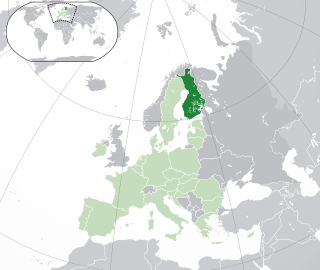
Lesbian, gay, bisexual, and transgender (LGBT) rights in Finland are among the most advanced in the world. Both male and female same-sex sexual activity have been legal in Finland since 1971 with "promotion" thereof decriminalized and the age of consent equalized in 1999. Homosexuality was declassified as an illness in 1981. Discrimination based on sexual orientation in areas such as employment, the provision of goods and services, etc., was criminalized in 1995 and discrimination based on gender identity in 2005.

The rights of lesbian, gay, bisexual, and transgender (LGBTQ) people in the United Kingdom of Great Britain and Northern Ireland have developed significantly over time. Today, lesbian, gay and bisexual rights are considered to be advanced by international standards.

New Zealand lesbian, gay, bisexual, and transgender (LGBT) rights are some of the most extensive in the world. The protection of LGBT rights is advanced, relative to other countries in Oceania, and among the most liberal in the world, with the country being the first in the region to legalise same-sex marriage.

Lesbian, gay, bisexual, and transgender (LGBTQ) rights in Iceland rank among the highest in the world. Icelandic culture is generally tolerant towards homosexuality and transgender individuals, and Reykjavík has a visible LGBT community. Iceland ranked first on the Equaldex Equality Index in 2023, and second after Malta according to ILGA-Europe's 2024 LGBT rights ranking, indicating it is one of the safest nations for LGBT people in Europe. Conversion therapy in Iceland has been illegal since 2023.
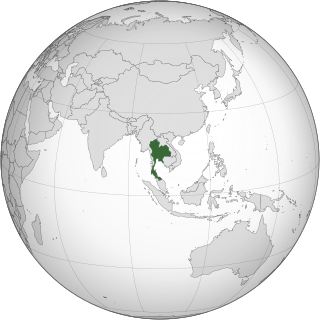
The rights of lesbian, gay, bisexual, and transgender (LGBTQ) people in Thailand are regarded as some of the most comprehensive of those in Asia. Both male and female same-sex sexual activity are legal, and the law legalizing same sex marriage is pending the royal assent. Thailand was the first Asian UN member state to pass a comprehensive same-sex marriage law, as well as the first in Southeast Asia and the 37th in the world. About eight percent of the Thai population, five million people, are thought to be in the LGBT demographic.

Lesbian, gay, bisexual and transgender (LGBT) individuals in the Republic of the Philippines have faced many difficulties in their homeland, such as prejudice, violence, abuse, assault, harassment and other forms of anti-LGBT rhetoric. Many LGBT Filipinos are met with mixed attitudes and reactions by their families, friends and others in their communities, as well as professionals, educators, their national public officials, politicians, attorneys and others working for the government and the rest of the general population.
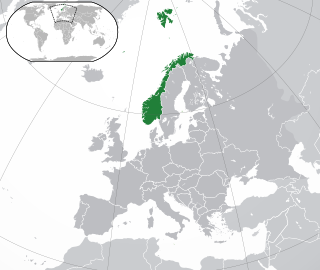
Lesbian, gay, bisexual, and transgender (LGBTQ) people in Norway have the same legal rights as non-LGBT people. In 1981, Norway became one of the first countries in the world to enact an anti-discrimination law explicitly including sexual orientation. Same-sex marriage, adoption, and assisted insemination treatments for lesbian couples have been legal since 2009. In 2016, Norway became the fourth country in Europe to pass a law allowing the change of legal sex for transgender people based on self-determination. On 1 January 2024, conversion therapy became legally banned within Norway.

Lesbian, gay, bisexual, and transgender (LGBT) rights in Switzerland are some of the most progressive by world standards. Social attitudes and the legal situation have liberalised at an increasing pace since the 1940s, in parallel to the situation in Europe and the Western world more generally. Legislation providing for same-sex marriage, same-sex adoption, and IVF access was accepted by 64% of voters in a referendum on 26 September 2021, and entered into force on 1 July 2022.

Lesbian, gay, bisexual, and transgender (LGBT) rights in Uruguay rank among the highest in the world. Same-sex sexual activity has been legal with an equal age of consent since 1934. Anti-discrimination laws protecting LGBT people have been in place since 2004. Civil unions for same-sex couples have been allowed since 2008 and same-sex marriages since 2013, in accordance with the nation's same-sex marriage law passed in early 2013. Additionally, same-sex couples have been allowed to jointly adopt since 2009 and gays, lesbians and bisexuals are allowed to serve openly in the military. Finally, in 2018, a new law guaranteed the human rights of the trans population.

Lesbian, gay, bisexual, and transgender (LGBT) rights in Scotland are generally in line with the rest of the United Kingdom, which have evolved extensively over time and are now regarded as some of the most progressive in Europe. In both 2015 and 2016, Scotland was recognised as the "best country in Europe for LGBTI legal equality".

Carla Delgado Gómez, better known by her stage name Carla Antonelli, is a Spanish actress, politician, and LGBT activist. After graduating from a conservatory in Santa Cruz de Tenerife and embarking on an acting career, she subsequently transitioned to politics, serving as a member of the Assembly of Madrid between 2011 and 2021. Originally a member of the Spanish Socialist Workers' Party (PSOE) until 2022, she has served as a national Senator as an independent associated with Más Madrid. A noted activist for the transgender community, Antonelli is the first openly trans person to be elected to the Cortes Generales, as well as the first openly trans person serve in a regional legislature in Spain.
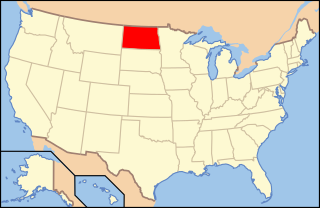
Lesbian, gay, bisexual, transgender, and queer (LGBTQ) people in the U.S. state of North Dakota may face some legal challenges not experienced by non-LGBTQ residents. Same-sex sexual activity is legal in North Dakota, and same-sex couples and families headed by same-sex couples are eligible for all of the protections available to opposite-sex married couples; same-sex marriage has been legal since June 2015 as a result of Obergefell v. Hodges. State statutes do not address discrimination on account of sexual orientation or gender identity; however, the U.S. Supreme Court's ruling in Bostock v. Clayton County established that employment discrimination against LGBTQ people is illegal under federal law.
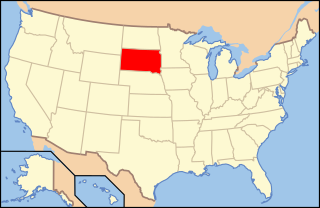
Lesbian, gay, bisexual, transgender, and queer (LGBTQ) people in the U.S. state of South Dakota may face some legal challenges not experienced by non-LGBTQ residents. Same-sex sexual activity is legal in South Dakota, and same-sex marriages have been recognized since June 2015 as a result of Obergefell v. Hodges. State statutes do not address discrimination on account of sexual orientation or gender identity; however, the U.S. Supreme Court's ruling in Bostock v. Clayton County established that employment discrimination against LGBTQ people is illegal under federal law.

The Equality Act was a bill in the United States Congress, that, if passed, would amend the Civil Rights Act of 1964 to prohibit discrimination on the basis of sex, sexual orientation and gender identity in employment, housing, public accommodations, education, federally funded programs, credit, and jury service. The Supreme Court's June 2020 ruling in Bostock v. Clayton County protects gay and transgender people in matters of employment, but not in other respects. The Bostock ruling also covered the Altitude Express and Harris Funeral Homes cases.
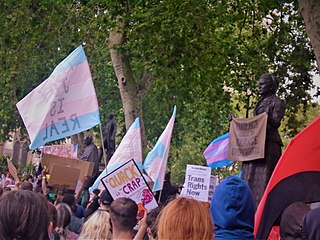
Transgender rights in the United Kingdom have varied significantly over time.

Gender self-identification or gender self-determination is the concept that a person's legal sex or gender is determined by their gender identity without any medical requirements, such as via statutory declaration.

The Gender Recognition Reform (Scotland) Bill is a bill passed by the Scottish Parliament. The bill seeks to amend the Gender Recognition Act 2004 of the Parliament of the United Kingdom, making it simpler for people to change their legal gender. On 17 January 2023, the United Kingdom government used section 35 of the Scotland Act 1998 to block the bill from receiving royal assent, the first time section 35 has been used.
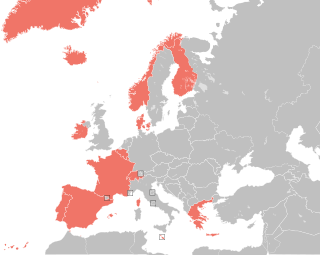
The Ley Trans is a 2023 law that permits gender self-identification in Spain. The law allows individuals to change their legal sex, with differing levels of approval required based on their age. People older than 16 years can solicit this change by themselves, while those aged 14 to 16 years may solicit this change only with the approval of their parents. Those aged 12 and 13 may also solicit a legal sex change with judge approval. The law does not allow people to switch to a non-binary gender, which does not exist in Spanish law. However, it does ban efforts to change people's gender expression, sexual orientation or sexual identity through conversion therapy.
References
- ↑ "Spain's Equality Ministry drafts law that would let citizens change official gender without medical checks". 3 February 2021.
- ↑ "Búsqueda de iniciativas - Congreso de los Diputados".
- ↑ "La 'ley trans' abre una nueva brecha entre PSOE y Unidas Podemos en el Gobierno". 3 February 2021.
- ↑ "Spain's governing partners show bad blood in public". 2 March 2021.
- 1 2 "Gender identity bill divides Spain's feminists, left-wing". Associated Press . 20 April 2021.
- ↑ Laudette, Clara-Laeila (3 February 2021). "Spain considers making it easier to officially change gender". Reuters.
- ↑ "Spain: Missed Opportunity on Gender Recognition". 20 May 2021.
- ↑ "Spanish policy makers say "no" to trans rights". 19 May 2021.
- ↑ "Spain: Trans rights supporters on hunger strike over new law". ABC News.
- ↑ "Vandals deface LGBT+ centre with transphobic graffiti amid fight for trans rights". 11 April 2021.